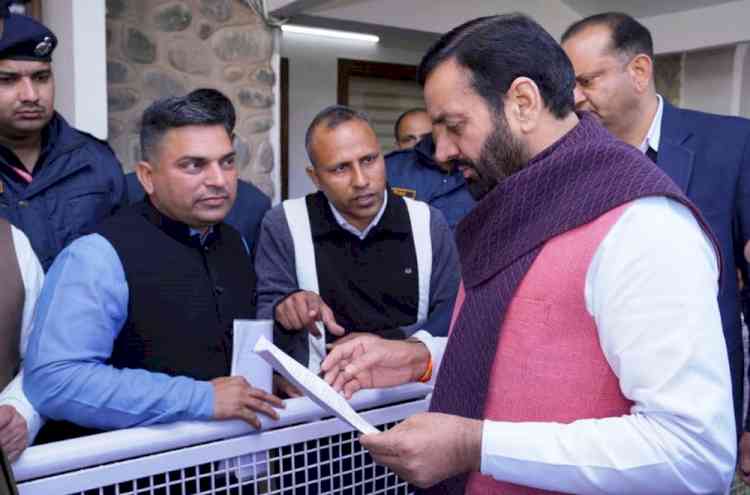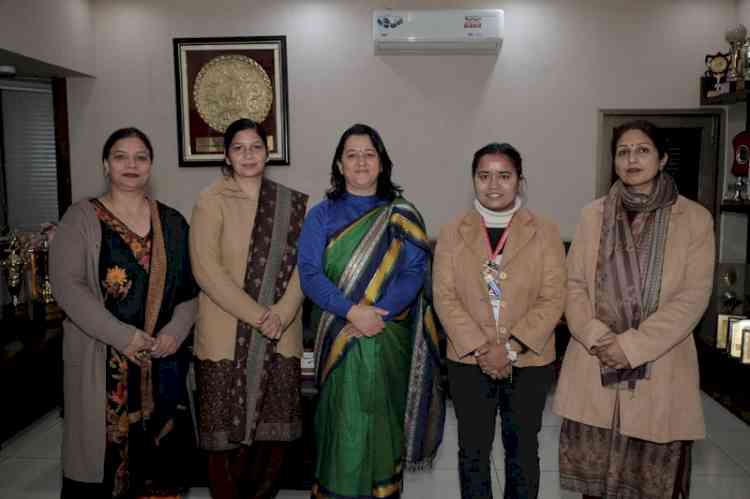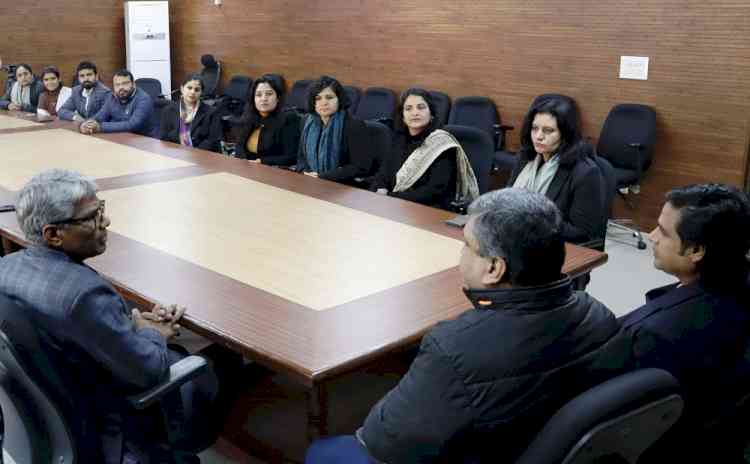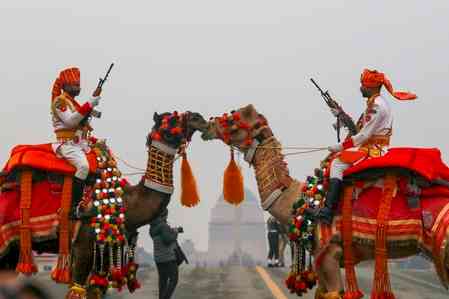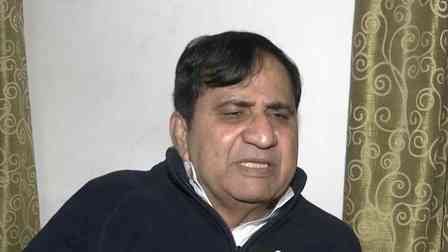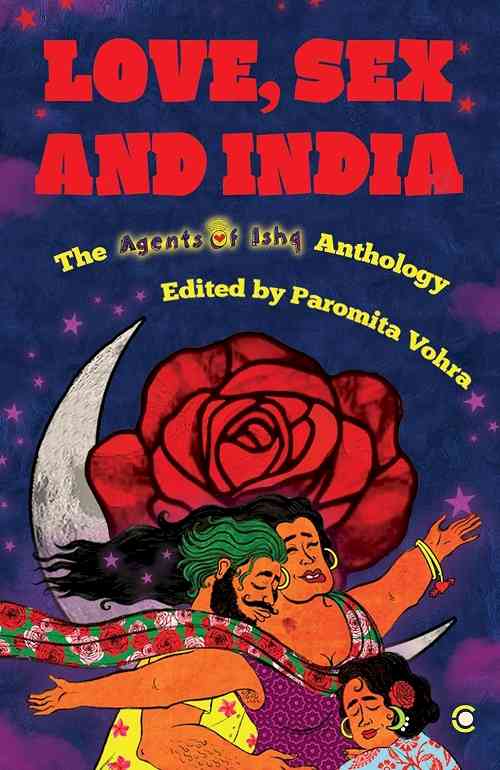Bharat bodh vyakhyan on relevance of Mahatma Gandhi’s vision
Event held at PU
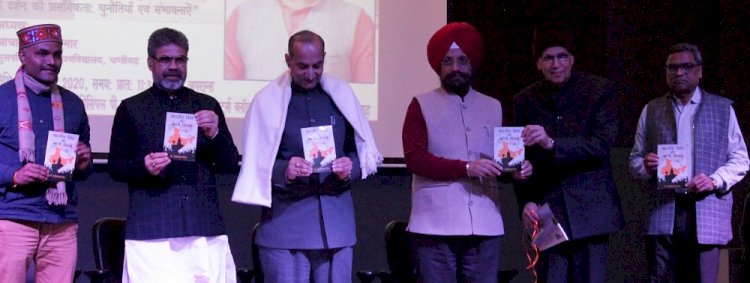
Chandigarh: Prof Rajneesh Shukla, Eminent Philosopher and Vice Chancellor, Mahatma Gandhi Antarrashtriya Hindi Vishwavidyalaya, Wardha delivered the Bharat Bodh Vyakhyan on “ Relevance of Mahatma Gandhi’s Vision in Contemporary Cultural Contexts: Challenges and Possibilities”, here today.
Prof Rajneesh Shukla, in his address, underscored why, in the present contexts of religious fundamentalism fuelling the menace of terrorism, communalism, caste- based politics, religious extremism, consumerism, and global warming, the “ satya and dharma- centric” vision of Mahatma Gandhi continues to guide Bharat and entire humanity towards swaraj and sarvodaya. He said that “ Mahatma Gandhi, in his words and deeds alike, always emphasised that the “ Artha or meaning” or “ essence “ of Bharat / Bharatiyata/ Bharatiya Samskriti” lies in its Dharma- centric worldview that is holistic and not predominantly exploitative, greed- driven, ecocidal, materialistic and anthropocentric - like the modern Western worldview”.
Gandhi’s “Hind Swaraj” still remains one of the key texts of Bharatiya holistic , dharmic culture that sums up “ civilisation / culture in ethical terms as “sudharo or good conduct” - leading one to the path of atma- bodh or self- realisation - the true state of swaraj. Moreover , cultural freedom is an important element of “ Swaraj “- that also implies “ political and economic freedom “ According to Gandhi , because of his emphasis on practical spirituality , true politics is always grounded in dharma. In fact, according to Gandhi, no aspect of human activity or life can be “dharma- nirapeksha”! One must never forget that the Gita, the Ramcharitamanas , the vision of Rama Rajya (good society), Jainaism and Vaishnava Bhakti remained the perennial source of inspiration for his ethical and political action.
Prof Rajneesh Shukla further said that, apart from Gandhi, no one else in the entire theatre of national freedom struggle, could say that he would reject any part of any sacred book that is anti- human, anti- reason and anti- morality!! And only a dharmic ( a position that is different from being only “ religious”) person like Gandhi could and would continue to assert throughout his life that “ he is a proud follower of sanatan Hindu dharma- which is based on “ dhriti ( patience), kshama ( forgiveness), dama(self- restraint), asteya ( non- stealing), shaucham( inner and external purity), indriya - nigraha( sense- control), dhee ( wisdom), vidya ( knowledge), satyam ( truth), akrodham( absence of anger or love for all).
Simlilarily, Prof Rajneesh Shukla highlighted how, in the name of Gandhian satyagraha, which is based on purity of thought , action and love for the opponent, all kinds of “ duragraha or anti- national dharanas are being validated - which is a kind of perversion of satya and ahimsa. Likewise, swadeshi is not merely hyper nativism, it embraces all but it stands committed first to one’s own language, literature, locality, people , production/economy and culture. Without “swadeshi” there cannot be any global welfarism or sarvodaya or lokasamgraha! In the field of higher education in modern India, parasitic dependence and hegemony of the English language and westoxified ideologiand epistemologies should be eliminated and the medium of instruction at all levels of education from primary to higher education should also be made available in the 22 languages of India enshrined in our Constitution. In this sense, Swadeshi education is important for decolonisation of minds and for countering the hegemony of the English language! In “ Hind Swaraj” Gandhi holds the English speaking ,westernised Indians primarily responsible for enslaving the Indians, and not the British!! In this Gandhian sense, Swadeshi means promotion of all Indian languages equally in all spheres , providing education in mother- tongues, and creating more and more opportunities for economic empowerment through soft skills in Indian languages.
Prof. Shukla also underlined that Gandhi’s moral and practical assault on caste- system and untouchability is well documented and is complementary to Dr Ambedkar’s project of annihilation of caste. Gandhi’s talisman is the best method to realise practical vedanta of non- dualism through one’s identification with the poorest of the poor and the spiritually starving millions.
Prof Shankar Ji Jha , Dean of University Instruction presided over the lecture.
Prof Karamjeet Singh, Registrar, Panjab University in his address while quoting lines from Guru Granth Sahab, he urged all to let spiritual wisdom be their guide to gain knowledge. He added that it is important to remain truthful, contended and contemplated the thoughts.
Prof Sudhir Kumar, Coordinator of PU Bharat Bodh Vyakhyan Shrinkhala introduced the theme and welcomed the guests.
On this occasion, Professor Virendra Kumar’s important monograph- “ Socio-religious Reform through Judicial Intervention: Its Limit and Limitation Under the Constitution( A Critique of the Supreme Court Judgement in Sabrimala Temple Case -2018)” was also released. The lecture was attended by the PU faculty members, media persons, research scholars, and students.


 cityairnews
cityairnews 
